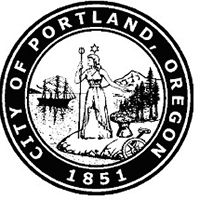
19 Canidates in the Portland Mayoral Race
The competitive mayoral race in Oregon’s largest city features 19 candidates, all aiming to lead amid growing frustration over homelessness. Among the contenders are three City Council members—one of whom is involved in a driving record controversy—a stripper, and a trucking company CEO promising to eliminate unsheltered homelessness within a year. This race opened up when Mayor Ted Wheeler opted not to seek reelection after serving since 2017. Wheeler gained national attention in 2020 as protests erupted in Portland and across the U.S. in response to the police killing of George Floyd.
City Council member Mingus Mapps and Liv Østhus, a writer, musician, and stripper known as Viva Las Vegas, are in the race. Mapps hopes to become Portland’s first Black mayor, and if either he, Rubio, or Gonzalez—who have Latino backgrounds—are elected, it would mark a historic moment for the city.
For much of the year, Rubio and Gonzalez were seen as frontrunners. However, recent disclosures regarding Rubio’s driving history, along with some issues in Gonzalez’s record, have altered the dynamics of the race.
The next mayor will manage a revamped government structure, as Portland expands its City Council from five to 12 members, who will be elected by district rather than citywide. A city manager position will also be introduced. For the first time, all candidates, including nearly 100 running for the new council seats, will be elected through ranked-choice voting.
Efforts to change Portland’s charter had been attempted before but failed until voters approved the revision in 2022. The most recent charter review began during the 2020 protests and a nationwide reckoning with racism, sparking discussions on making government more accountable and equitable.
A significant number of candidates of color are now competing for the new council seats and the mayoral position in the predominantly white city. However, it remains uncertain how voters and elected officials will adapt to the new system and its logistics. Common themes in this year’s campaign include concerns about homelessness and public drug use.
Surveys in recent years indicate that Portlanders consider homelessness a primary issue, according to John Horvick, senior vice president of DHM Research. City Council members Rene Gonzalez and Carmen Rubio, along with Keith Wilson, whose freight company utilizes electric trucks, are leading in fundraising among the mayoral candidates. Each has proposed different strategies to address homelessness in a metro area where nearly 4,000 individuals were counted as living unsheltered in January 2023.
Regarding approaches to homelessness, Gonzalez, who has the backing of law enforcement groups, has urged Multnomah County to halt the distribution of tents and tarps to homeless individuals and has advocated for stricter enforcement of anti-camping regulations.
Rubio has accumulated approximately 150 parking and traffic violations over the past 20 years, failing to pay many of them for extended periods and experiencing six license suspensions. She lost several endorsements following this revelation, first reported by The Oregonian/OregonLive. Gonzalez also faced license suspensions two decades ago and received seven speeding tickets between 1998 and 2013, one of which was dismissed, as first noted by Willamette Week.
Under ranked-choice voting, voters will rank candidates in order of preference. If a candidate secures over 50% of first-choice votes in the initial round, they win. If not, the candidate with the fewest votes is eliminated, and their supporters’ votes are redistributed to their next choices. This process continues until a candidate obtains a majority.
Rubio has called for an increase in outreach workers and better coordination among those involved in responding to homelessness, including shelters and social service organizations. Wilson, who founded a nonprofit aimed at increasing shelter capacity, has committed to ending unsheltered homelessness within his first year. His campaign promises to achieve this by expanding nighttime walk-in emergency shelters in existing venues like churches and community centers.













